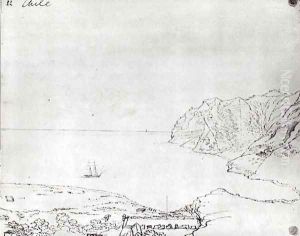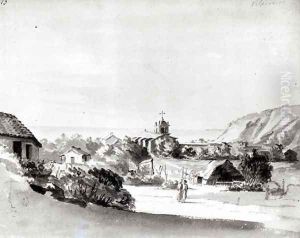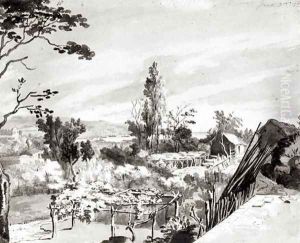Maria Callcott Paintings
Maria Callcott, born Maria Dundas in 1785, was an English author and travel writer, known for her educational children's literature and insightful accounts of her voyages. She was a prominent figure in the early 19th century, blending her passion for travel, learning, and literature into works that captivated both young and adult readers of her time. Maria's contributions to literature and education were notable for their depth of knowledge and accessibility, making her a pioneering woman writer in an era when female authors were often marginalized.
Maria married Captain (later Sir) James Callcott in 1818, becoming Lady Callcott. Her marriage introduced her to a wider world of travel and exploration, significantly influencing her writing. She published several books under her married name, including the well-received 'A Short History of Spain' (1828) and 'Little Arthur's History of England' (1835). These works reflected her innovative approach to history and education, presenting complex subjects in a manner that was engaging and understandable for children. Her travel books, based on her experiences in South America and India, were among the first to offer British readers a glimpse into these distant lands through a female perspective.
Maria Callcott's legacy extends beyond her literary contributions. She was instrumental in shaping early 19th-century attitudes towards education and the role of women in literature and society. Her works continue to be studied for their historical value and as examples of early 19th-century travel writing. Despite facing the challenges of being a woman writer in a male-dominated society, Maria Callcott's intellect, curiosity, and literary talent allowed her to carve out a unique place in the annals of English literature and history. She passed away in 1842, leaving behind a body of work that continues to inspire and educate.


